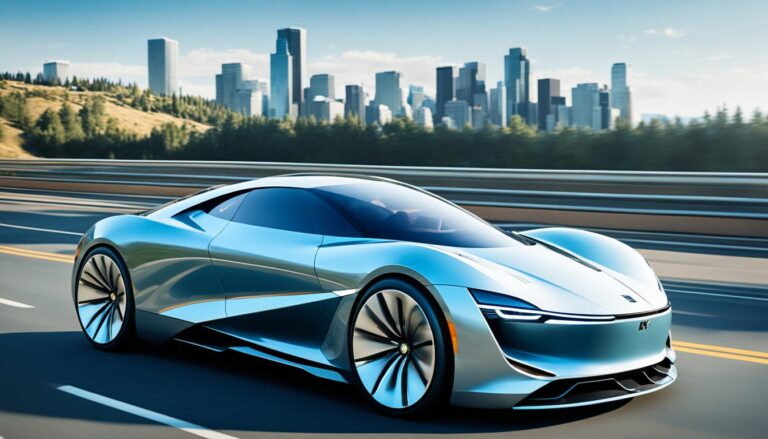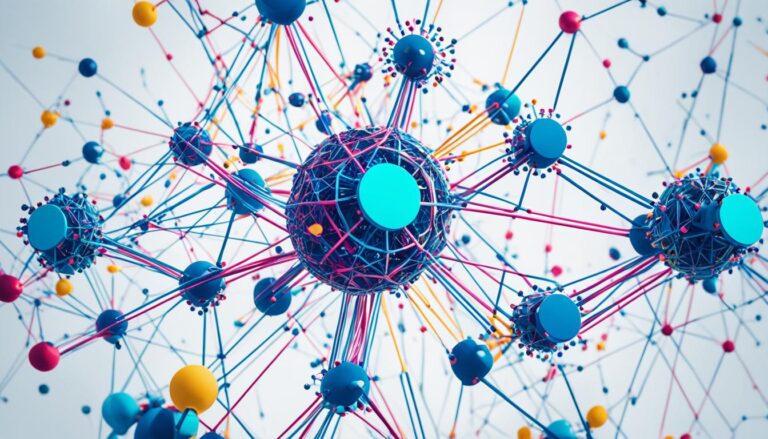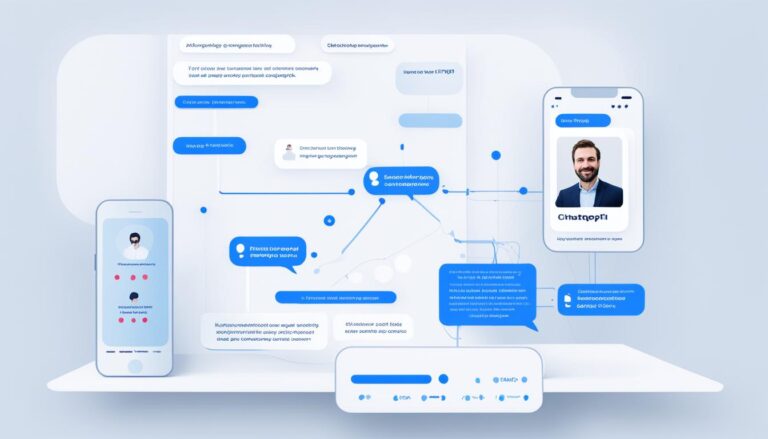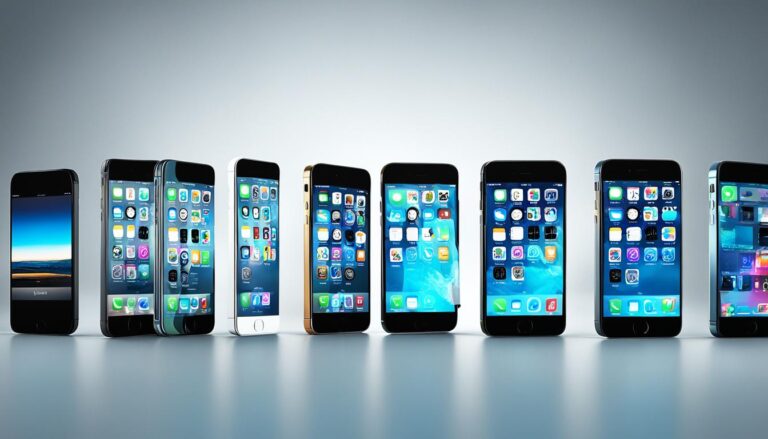
Photo by Jessica Lewis Creative on <a href="https://www.pexels.com/photo/boy-wearing-a-black-and-white-virtual-reality-goggles-3391378/" rel="nofollow">Pexels.com</a>
- Introduction
- The Meaning of AI in Entertainment
- Impact of AI on the Entertainment Industry
- Netflix and AI: A Winning Combination
- The Influence of Technology on Entertainment
- AI in Popular Films and Web Series
- The Future of Entertainment: Driven by Technology
- Benefits of Future Technologies in Entertainment
- Additional Applications of AI in Entertainment
- Ethical Considerations in AI-Powered Entertainment
- Embracing AI in Entertainment
- Conclusion
- References
- Popular and Trending FAQs on AI in Entertainment
Introduction
The entertainment industry has experienced a rapid evolution in recent years, largely due to the emergence of Artificial Intelligence (AI) and related technologies. AI is impacting a wide range of industries, but perhaps one of the most significant transformations has occurred in the entertainment sector. In this blog post, we will explore the various ways AI is changing the landscape of entertainment, as well as the potential benefits and advancements we can expect in the future.
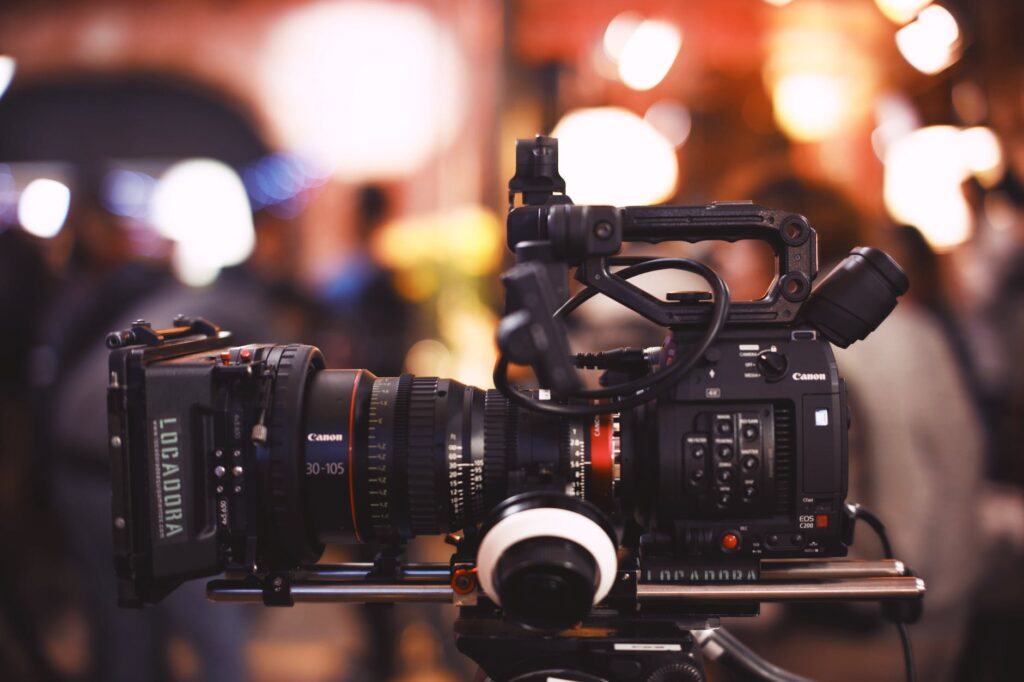
The Meaning of AI in Entertainment
AI in entertainment refers to the application of AI technologies, such as machine learning, natural language processing, and computer vision, in various aspects of the entertainment industry. This includes content creation, distribution, and consumption, as well as audience engagement and personalization.
Impact of AI on the Entertainment Industry
AI has brought about significant changes in the way entertainment is produced, consumed, and distributed. From automating repetitive tasks to generating personalized content recommendations, AI is fundamentally reshaping the industry. The integration of AI has led to improvements in efficiency, cost savings, and the ability to create more immersive and engaging experiences for audiences.
AI in Movies
AI is increasingly being used in the movie-making process, from pre-production to post-production. In pre-production, AI can help with script analysis and optimization, identifying plot points and character arcs that resonate with audiences. During production, AI-powered visual effects can create realistic virtual worlds and characters, while in post-production, AI can help with color grading and sound design.
One notable example of AI in movies is the use of AI-generated deepfake technology in the film “Gemini Man” (2019), where a younger digital version of Will Smith was created to play opposite his older self.

Machine Learning Applications in Entertainment
Machine learning, a subset of AI, has found numerous applications in the entertainment industry. These include:
- Content recommendation engines: Machine learning algorithms analyze user preferences and behavior to suggest relevant content, increasing engagement and user satisfaction.
- Game development: Machine learning techniques are used to create more realistic non-player characters (NPCs) and to adapt gameplay to the player’s skill level.
- Music composition: AI-generated music can enhance movie soundtracks, video games, and advertisements, offering endless possibilities for unique compositions.
Netflix and AI: A Winning Combination
Netflix is a prime example of a company leveraging AI to revolutionize the entertainment industry. The streaming giant uses machine learning algorithms to analyze user data, such as viewing habits, ratings, and browsing history. Based on this data, Netflix generates personalized content recommendations for each user, which has been credited with increasing viewer engagement and reducing churn.
Furthermore, Netflix uses AI to optimize streaming quality, ensuring a smooth and enjoyable viewing experience for its subscribers.

The Influence of Technology on Entertainment
Technology has played a significant role in shaping the entertainment industry over the years. The introduction of the internet, smartphones, and streaming services has transformed how we consume content, allowing for instant access to movies, music, and games from anywhere in the world. Additionally, technologies like virtual reality (VR) and augmented reality (AR) are providing immersive experiences that were once unimaginable.
Technologies in Use Today
Some of the current technologies used in the entertainment industry include:
- Virtual Reality (VR): VR headsets provide immersive experiences by placing users in a computer-generated environment, commonly used in gaming and interactive storytelling.
- Augmented Reality (AR): AR overlays digital elements onto the real world, enhancing experiences in areas like gaming, education, and live events.
- Blockchain: The blockchain technology is being used to secure digital assets, streamline royalty payments, and enable decentralized content distribution platforms.
- Cloud computing: The entertainment industry relies on cloud computing for efficient storage and distribution of content, as well as for scalable computing power in content creation and analysis.
AI in Popular Films and Web Series
| Title | Release Year | Type | Brief Description |
|---|---|---|---|
| 2001: A Space Odyssey | 1968 | Film | A classic sci-fi film that features HAL 9000, an AI computer that controls a spacecraft and develops a mind of its own. |
| Blade Runner | 1982 | Film | A dystopian film set in a future where AI-powered humanoid robots, known as “Replicants,” are hunted down by a special police unit. |
| The Terminator | 1984 | Film | A futuristic action film featuring an AI-powered killer robot sent back in time to assassinate the mother of the future human resistance leader. |
| The Matrix | 1999 | Film | A groundbreaking sci-fi film in which humans are trapped in a simulated reality controlled by an AI-driven system. |
| A.I. Artificial Intelligence | 2001 | Film | A futuristic film about a highly advanced AI-powered robot child who seeks to become “real” to regain the love of his human adoptive mother. |
| Her | 2013 | Film | A romantic drama featuring an AI-powered virtual assistant, Samantha, who develops a deep relationship with a lonely man. |
| Ex Machina | 2014 | Film | A thought-provoking film about a young programmer who is invited to administer the Turing test to an intelligent humanoid robot named Ava. |
| Westworld | 2016-present | Web Series | A science fiction series set in a futuristic amusement park populated by AI-powered androids, exploring themes of AI consciousness, human nature, and morality. |
| Altered Carbon | 2018-2020 | Web Series | A cyberpunk series set in a future where AI and other advanced technologies allow human consciousness to be transferred between bodies, raising questions about identity, morality, and the nature of humanity. |
| Love, Death & Robots | 2019-present | Web Series | An animated anthology series featuring various episodes that explore different aspects of AI, including robots, virtual reality, and other futuristic technologies. |
These films and web series showcase various aspects of AI, from its potential ethical implications to the complex relationships that can develop between humans and AI-powered entities. They serve as both entertainment and thought-provoking explorations of the role AI may play in our future. By examining the stories told in these films and series, we can gain a deeper understanding of the possibilities and challenges that AI presents, as well as the diverse ways it can shape our lives and the world around us.
The Future of Entertainment: Driven by Technology
As technology continues to advance, the future of entertainment will be shaped by new innovations and breakthroughs. Some potential developments include:
- Increased use of AI-generated content: As AI technologies become more sophisticated, we may see a rise in AI-generated movies, music, and games.
- Expansion of VR and AR experiences: As these technologies mature, we can expect a broader range of applications and more engaging experiences in the entertainment sector.
- Integration of brain-computer interfaces: The development of brain-computer interfaces could enable more intuitive and immersive ways to interact with digital content.
Benefits of Future Technologies in Entertainment
The implementation of advanced technologies in the entertainment industry offers several potential benefits:
- Enhanced creativity: AI and other technologies can augment human creativity, enabling artists to push boundaries and create new forms of entertainment.
- Improved accessibility: Technology can help make entertainment more accessible to a wider audience, breaking down barriers related to language, physical limitations, and socio-economic status.
- Greater personalization: As AI becomes more adept at understanding individual preferences, users can expect even more personalized experiences tailored to their unique tastes and interests.
- Sustainability: The adoption of energy-efficient technologies and virtual experiences can contribute to a more sustainable entertainment industry with a reduced environmental footprint.
Additional Applications of AI in Entertainment
Beyond the applications already discussed, AI continues to find new ways to enhance the entertainment industry. Some additional applications include:
AI in Advertising and Marketing

AI is being used to personalize advertising and marketing strategies in the entertainment industry. By analyzing consumer data, AI algorithms can deliver targeted ads to individuals based on their preferences, increasing the likelihood of engagement and conversion.
AI in Sports and eSports
AI has made its way into the world of sports and eSports, providing real-time analytics, predicting outcomes, and even simulating matches for training purposes. AI-powered systems are also used for audience engagement, generating highlights, and creating personalized content for fans.
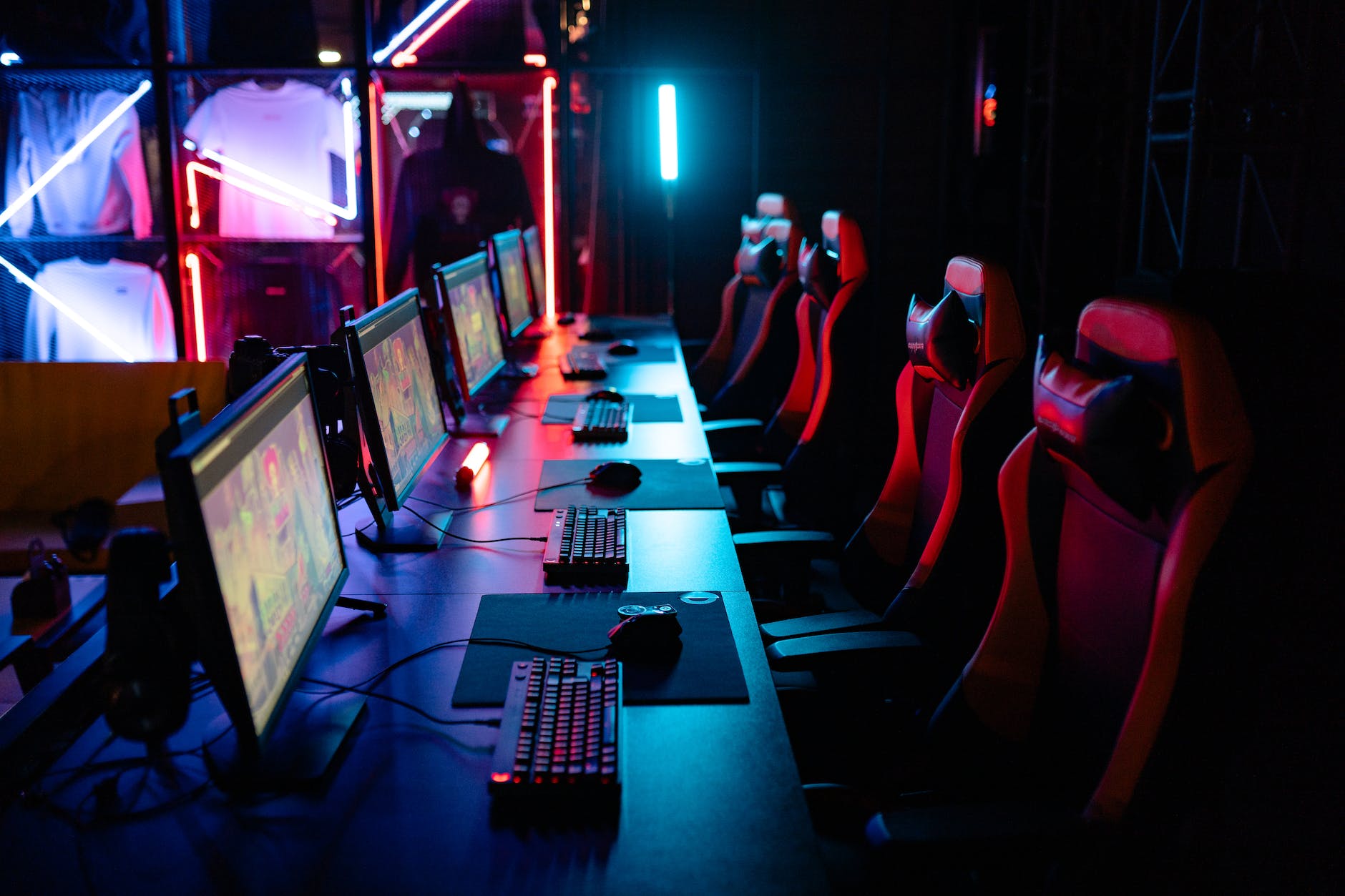
AI in Theme Parks and Live Events

AI can enhance visitor experiences at theme parks and live events by enabling interactive attractions, virtual guides, and personalized recommendations. AI-powered robots and virtual assistants can provide information, entertainment, and assistance, further enriching the overall experience.
AI in Content Moderation
AI is being employed to monitor and moderate content across various entertainment platforms. By using machine learning algorithms, AI can analyze and identify inappropriate or harmful content, helping to create safer and more enjoyable online environments for users.

Ethical Considerations in AI-Powered Entertainment
While the benefits of AI in entertainment are significant, it is essential to address potential ethical concerns. Issues such as data privacy, algorithmic bias, and the impact on creative professionals must be carefully considered as the industry continues to integrate AI technologies.
- Data privacy: As AI relies on user data to function effectively, it is crucial to ensure that this data is handled responsibly and securely.
- Algorithmic bias: AI algorithms can inadvertently perpetuate biases present in the data they analyze, leading to unfair or discriminatory outcomes. The entertainment industry must work to eliminate these biases and ensure equitable experiences for all users.
- Impact on creative professionals: The rise of AI-generated content raises concerns about the potential displacement of human creators. The industry must find ways to balance the use of AI with the need to support and nurture human talent.
Embracing AI in Entertainment
The potential of AI to revolutionize the entertainment industry is vast, and we are only just beginning to scratch the surface of what is possible. By embracing AI technologies and addressing ethical concerns, the entertainment industry can unlock new levels of creativity, engagement, and personalization, delivering unique and memorable experiences for audiences worldwide.
Conclusion
The integration of AI and other advanced technologies in the entertainment industry has resulted in a significant transformation in the way content is created, distributed, and consumed. As these technologies continue to evolve, we can anticipate even more exciting developments and innovative experiences that will redefine the future of entertainment. With the potential to enhance creativity, improve accessibility, and offer greater personalization, the future of the entertainment industry looks brighter than ever before.
References
- Goldman Sachs. (2020). Technology Driving Innovation in Media. Retrieved from https://www.goldmansachs.com/insights/pages/technology-driving-innovation-2020/report.pdf
- Marr, B. (2019). How Netflix Uses AI, Data Science, and Big Data. Forbes. Retrieved from https://www.forbes.com/sites/bernardmarr/2019/11/25/how-netflix-uses-ai-data-science-and-big-data-25-amazing-facts/
- Roush, W. (2019). How AI Is Changing The Entertainment Industry. Xconomy. Retrieved from https://xconomy.com/national/2019/09/12/how-ai-is-changing-the-entertainment-industry/
- Schwind, J. (2021). The Future of Entertainment: AI, Blockchain, and AR/VR. Medium. Retrieved from https://medium.com/swlh/the-future-of-entertainment-ai-blockchain-and-ar-vr-2d3c3a73d116
- Boorstin, J. (2018). AI is Changing The Entire Nature of Compute. CNBC. Retrieved from https://www.cnbc.com/2018/06/18/ai-is-changing-the-entire-nature-of-compute.html
- Hill, R. (2020). AI in Sports: Game-Changing Technologies. Medium. Retrieved from https://medium.com/swlh/ai-in-sports-game-changing-technologies-1c0f9d96c9d8
- Legg, M. (2021). The Ethical Implications of AI in Entertainment. The Sociable. Retrieved from https://sociable.co/technology/the-ethical-implications-of-ai-in-entertainment/
- Park, S. (2019). How AI is Transforming Advertising. Forbes. Retrieved from https://www.forbes.com/sites/forbesagencycouncil/2019/02/08/how-ai-is-transforming-advertising/?sh=5aa6d5d5e1c7
Popular and Trending FAQs on AI in Entertainment
As AI continues to make its mark on the entertainment industry, it’s natural for people to have questions about its applications and implications. Here are some popular and trending frequently asked questions (FAQs) on AI in entertainment:
Q: How is AI improving the user experience on streaming platforms?
A: AI algorithms analyze user data, such as viewing history and preferences, to generate personalized recommendations, making it easier for users to find content they’ll enjoy. AI also helps improve content delivery by optimizing streaming quality based on the user’s internet connection.
Q: Are AI-generated movies and music threatening the livelihood of human creators?
A: While AI-generated content is becoming more advanced, it is generally considered a tool that can augment human creativity rather than replace it. Many creators are embracing AI technologies to explore new creative possibilities and enhance their work, rather than viewing it as a threat to their careers.
Q: Can AI help in combating piracy in the entertainment industry?
A: Yes, AI can play a significant role in combating piracy by detecting and analyzing patterns of illegal distribution. AI-powered systems can track and identify copyrighted content uploaded to various platforms, making it easier for copyright holders to take legal action and remove unauthorized copies.
Q: How is AI being used in video game development?
A: AI is used in various aspects of video game development, including procedural content generation, creating realistic non-player character (NPC) behavior, and enhancing game design through player data analysis. AI can also help in optimizing game performance and creating more immersive experiences.
Q: Will AI-powered robots and virtual assistants become a standard part of the entertainment experience?
A: It’s possible that as AI technologies advance, robots and virtual assistants will become more integrated into entertainment experiences. They may serve as guides, entertainers, or even companions, offering personalized interactions and enhancing the overall experience for users.

